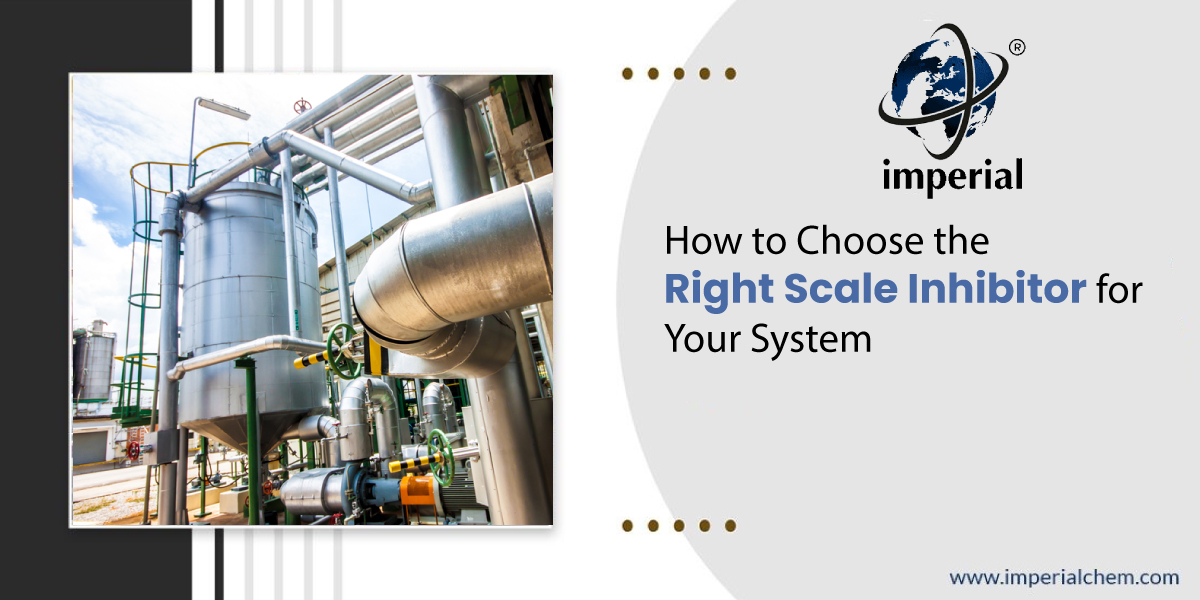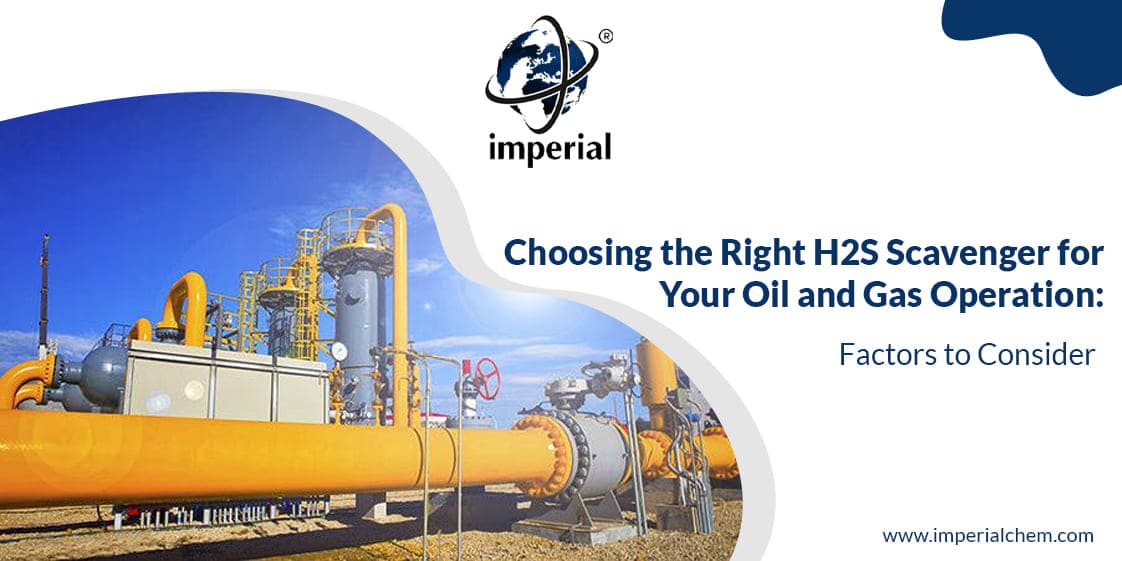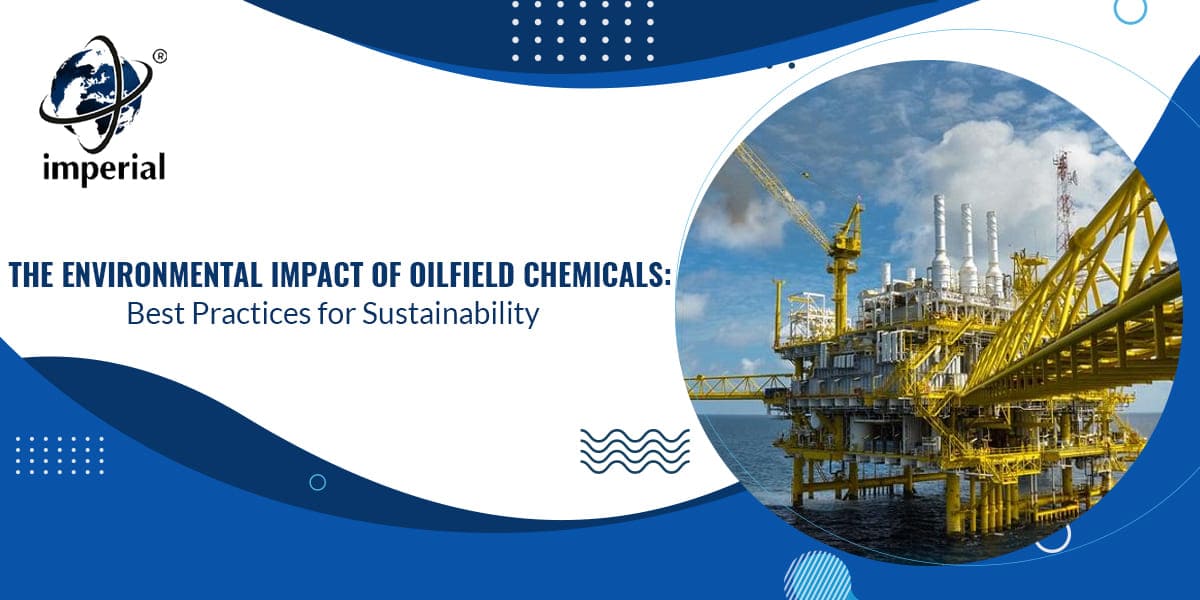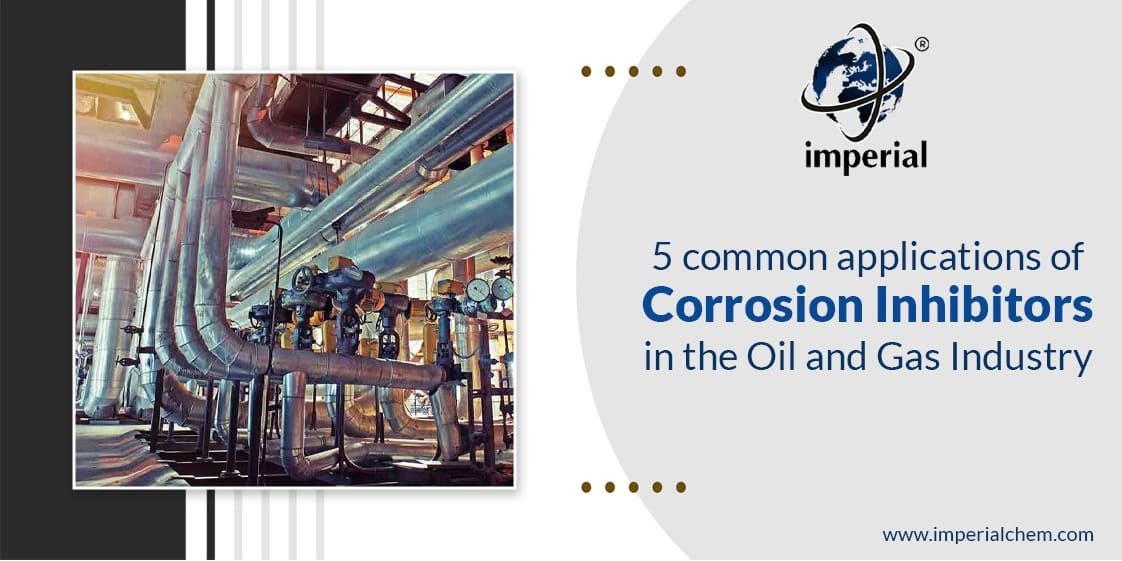- All Products
- Corrosion Inhibitor
- Oxygen Scavenger
- Drag Reducing Agent / Flow Improver
- H2S Scavenger
- Triazine
- Demulsifier
- Emulsion Breaker
- Surfactant
- Wax / Parrafin Disperssant
- Asphaltene Inhibitor

Blog Details

12
Jun
2024
How to Choose the Right Scale Inhibitor for Your System
In the oil and gas industry, maintaining the efficiency of equipment and systems is paramount. One of the most common challenges faced is the formation of scale deposits, which can severely impact productivity and lead to costly downtime and repairs. Scale inhibitors are crucial chemicals that prevent the formation of scale, ensuring smooth operation and extending the life of your equipment. In this comprehensive guide, we will delve into how to choose the right scale inhibitor for your system, highlighting the expertise of Imperial Oilfield Chemicals Pvt. Ltd. (ICPL) - the most trusted Scale Inhibitor manufacturer in Vadodara
Understanding Scale Formation:
Scale formation occurs when dissolved minerals in water precipitate and deposit on surfaces, leading to blockages and reduced efficiency in pipes, boilers, and other equipment. Common types of scales include calcium carbonate, calcium sulfate, barium sulfate, and silica. The presence of scale not only hinders fluid flow but also increases energy consumption and maintenance costs.
Importance of Choosing the Right Scale Inhibitor:
Selecting the appropriate scale inhibitor is critical for preventing these deposits and ensuring optimal performance. The right inhibitor will effectively target the specific type of scale present in your system, provide long-lasting protection, and be compatible with other treatment chemicals. Using an ineffective scale inhibitor can lead to persistent scaling issues, increased operational costs, and potential equipment failure.
Factors to Consider When Choosing a Scale Inhibitor:
-
● Type of Scale:
Identify the type of scale your system is prone to. Different inhibitors are formulated to target specific types of scale. For instance, phosphonate-based inhibitors are effective against calcium carbonate, while polymer-based inhibitors work well against silica and sulfate scales.
-
● Water Chemistry:
Analyze the composition of the water in your system. Factors such as pH, temperature, hardness, and the concentration of scaling ions play a significant role in determining the suitable scale inhibitor. Conducting a detailed water analysis helps in selecting an inhibitor that will perform effectively under the given conditions.
-
● System Conditions:
Consider the operational conditions of your system, including temperature, pressure, and flow rate. These factors influence the performance and stability of scale inhibitors. High temperatures and pressures may require specialized inhibitors with enhanced thermal stability.
-
● Compatibility with Other Chemicals:
Ensure that the chosen scale inhibitor is compatible with other treatment chemicals used in your system. Incompatibility can lead to reduced efficacy or unwanted chemical reactions. It is advisable to consult with a knowledgeable supplier like ICPL to select the best combination of chemicals.
-
● Environmental and Safety Regulations:
Select scale inhibitors that comply with environmental and safety regulations. Some regions have strict guidelines regarding the use of certain chemicals, and using compliant products helps avoid legal issues and promotes sustainability.
-
● Cost-Effectiveness:
Evaluate the cost-effectiveness of the scale inhibitor. While it is important to choose an effective product, it should also fit within your budget. Consider factors like dosage rates, frequency of application, and overall treatment costs.
Types of Scale Inhibitors:
-
● Phosphonate-Based Inhibitors:
Phosphonates are widely used due to their high efficacy in preventing calcium carbonate and calcium sulfate scales. They work by chelating with scaling ions, preventing them from precipitating and forming deposits. Phosphonates are also known for their stability in high-temperature environments.
-
● Polymer-Based Inhibitors:
Polymers such as polyacrylic acid and polymaleic acid are effective against a broad range of scales, including silica and sulfate scales. They function by dispersing scale-forming particles and preventing their agglomeration and deposition.
-
● Organic and Inorganic Inhibitors:
Organic inhibitors, like carboxylates and sulfonates, offer excellent performance in diverse conditions and are often used in combination with other inhibitors for enhanced effectiveness. Inorganic inhibitors, such as zinc compounds, are less commonly used but can be effective in specific scenarios.
-
● Biodegradable Inhibitors:
With growing environmental concerns, biodegradable scale inhibitors are gaining popularity. These inhibitors provide effective scale control while minimizing environmental impact. They are particularly useful in industries with stringent environmental regulations.
Why Choose Scale Inhibitors Manufactured by ICPL?
Imperial Oilfield Chemicals Pvt. Ltd. (ICPL) is a leading Scale inhibitor manufacturer in India, renowned for high-quality scale inhibitors tailored to meet diverse needs. Here’s why you should consider scale inhibitors manufactured by ICPL:
-
● Expertise and Experience:
With years of experience and a deep understanding of the challenges faced in the oil and gas industry, ICPL offers expert guidance and reliable solutions. Their team of skilled professionals ensures that you get the most effective and suitable scale inhibitor for your system.
-
● High-Quality Products:
ICPL is committed to delivering top-notch products that meet stringent quality standards. Their scale inhibitors are formulated using advanced technologies and tested rigorously to ensure optimal performance and durability.
-
● Customized Solutions:
Every system is unique, and ICPL provides customized solutions to address specific needs. Whether you are dealing with calcium carbonate, silica, or sulfate scales, ICPL can formulate a scale inhibitor that offers precise and effective protection.
-
● Compliance and Sustainability:
ICPL adheres to all relevant environmental and safety regulations, providing products that are safe for use and environmentally friendly. Their biodegradable scale inhibitors are designed to minimize environmental impact while maintaining high efficiency.
-
● Cost-Effective Options:
ICPL offers a range of scale inhibitors that cater to different budgets without compromising on quality. Their cost-effective solutions ensure you get the best value for your investment.
Case Studies: Success Stories with ICPL's Scale Inhibitors
-
- Case Study 1: Oilfield Application
A major oilfield in Gujarat was experiencing severe scaling issues, leading to frequent shutdowns and maintenance. After consulting with ICPL, a customized phosphonate-based scale inhibitor was introduced. The results were remarkable, with a significant reduction in scale deposits and improved operational efficiency. The oilfield reported savings in maintenance costs and increased production uptime.
-
- Case Study 2: Industrial Water Treatment
An industrial plant in Vadodara was struggling with silica scaling in their cooling towers. ICPL recommended a polymer-based scale inhibitor specifically designed for silica control. The inhibitor effectively prevented scale formation, resulting in uninterrupted operations and extended equipment life. The plant saw a substantial decrease in energy consumption and maintenance expenses.
How to Implement Scale Inhibitors Effectively?
-
● Conduct a Thorough System Analysis:
Before selecting a scale inhibitor, perform a detailed analysis of your system, including water chemistry, operational conditions, and existing scaling issues.
-
● Consult with Experts:
Engage with experts from ICPL to identify the most suitable scale inhibitor for your specific needs.
-
● Monitor and Adjust Dosage:
Regularly monitor the performance of the scale inhibitor and adjust the dosage as needed. Continuous monitoring ensures that the inhibitor is providing optimal protection and allows for timely adjustments.
-
● Regular Maintenance and Inspections:
Incorporate regular maintenance and inspections to detect and address any scaling issues early. Preventive maintenance helps in maintaining the effectiveness of the scale inhibitor and prolongs the life of your equipment.
-
● Stay Updated with New Technologies:
Stay informed about new developments and advancements in scale inhibitor technologies. ICPL continually innovates to provide cutting-edge solutions, and keeping up with these advancements can enhance your scale control strategies.
Final Thoughts:
Choosing the right scale inhibitor is crucial for maintaining the efficiency and longevity of your equipment in the oil and gas industry. By considering factors such as the type of scale, water chemistry, system conditions, and cost-effectiveness, you can select an inhibitor that meets your specific needs. Imperial Oilfield Chemicals Pvt. Ltd. (ICPL), the most trusted Scale Inhibitor manufacturer in Vadodara, offers high-quality, customized solutions to tackle your scaling challenges effectively.
For the best scale inhibitors in the industry, trust ICPL, the Best oilfield chemicals company in Gujarat. With their expertise, quality products, and commitment to customer satisfaction, ICPL ensures that your systems remain scale-free and operate at peak efficiency. Contact ICPL today to learn more about their range of scale inhibitors and how they can help optimize your operations.
Are you facing scaling issues in your systems? Buy scale inhibitors from ICPL, the most trusted Scale Inhibitor manufacturer in Vadodara. With ICPL's expert solutions, keep your equipment running smoothly and efficiently.











